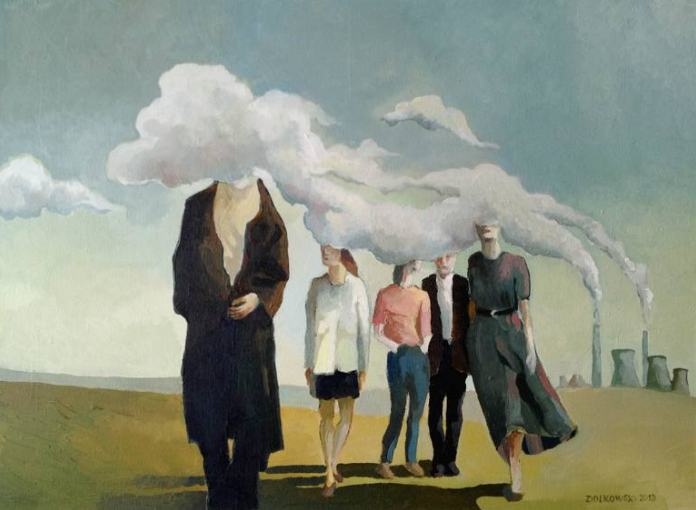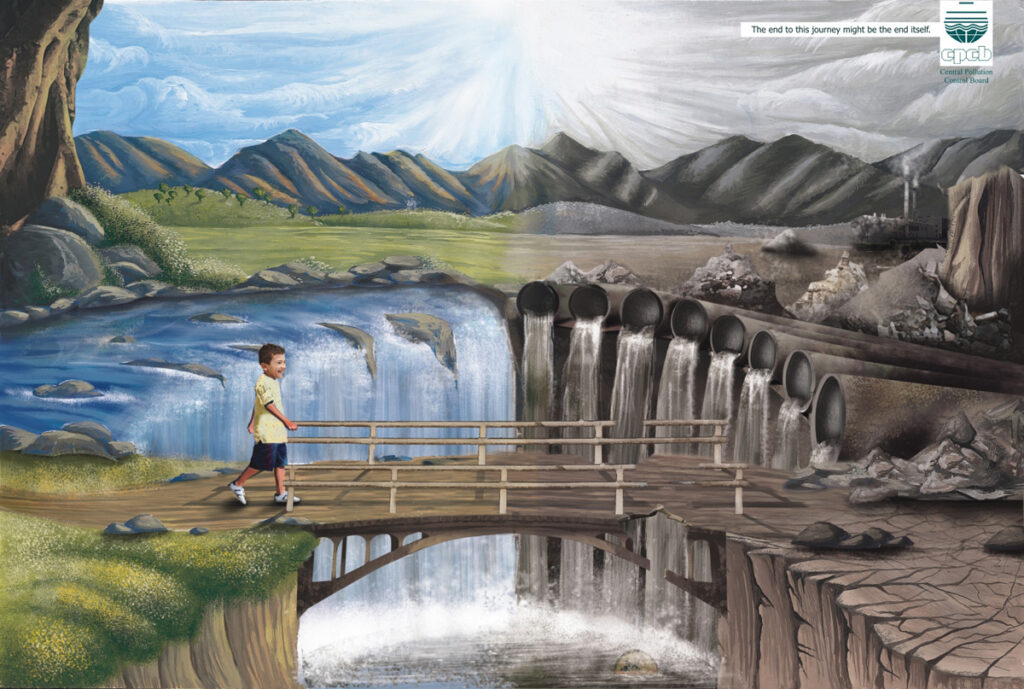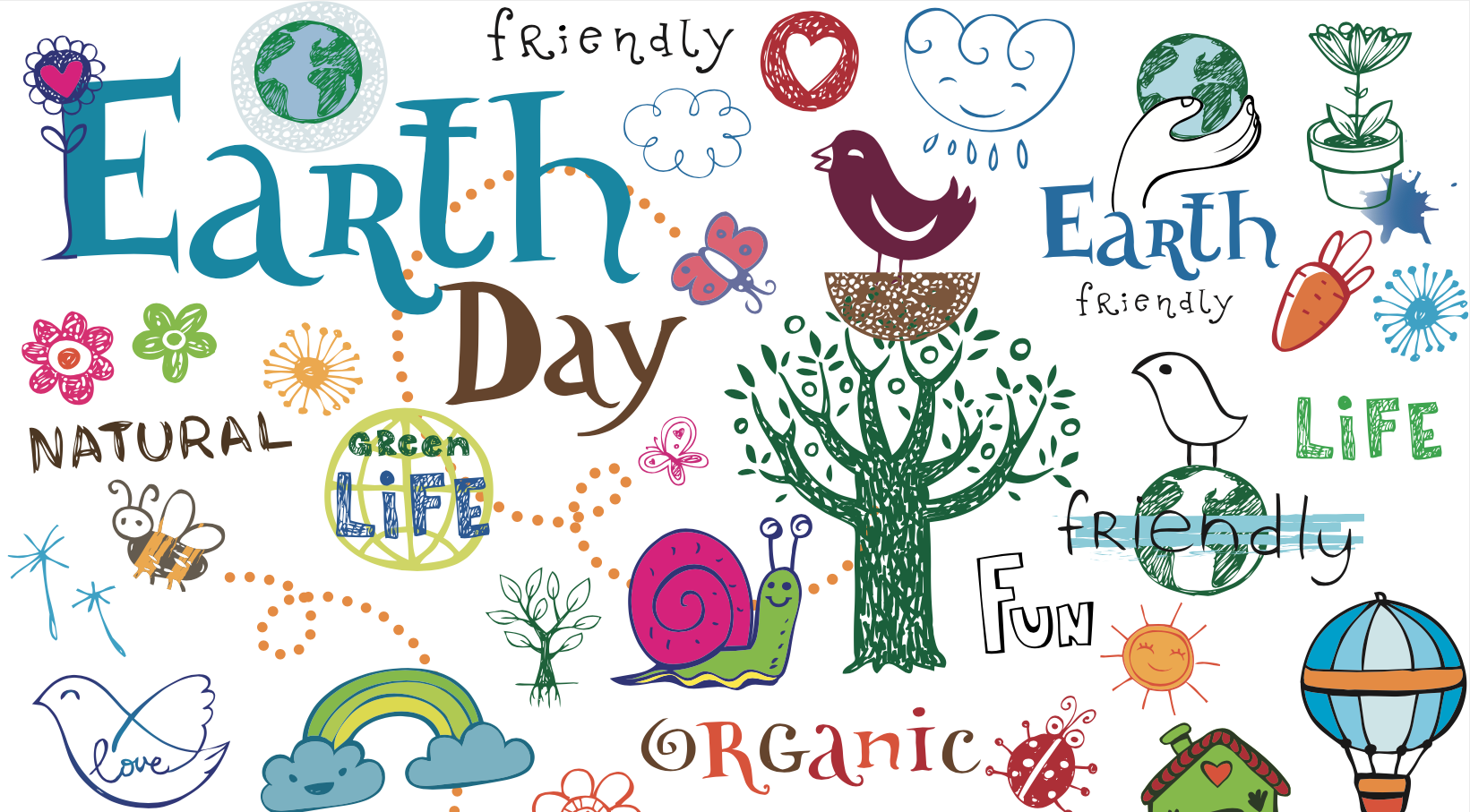By Rania Tsoli,
The miracle of our existence has come to be one of the greatest questions of humanity, and it troubles many; from philosophers and artists that glorify its mysterious beauty through their words and masterpieces, to scientists that wonder how it all played out in order for us to be here today, while they endlessly search for answers. The entirety of our many discoveries, our complex lives, and our rich history lies in a pale blue dot that is barely noticeable in the vastness of our galaxy.
Our small planet has kept us safe while we continue to evolve over the course of many centuries. Unfortunately, however, Earth has not always been treated with the same amount of kindness and care. With modern technology at its peak, people often seem to turn away from nature, while getting more and more attached to their colorful, shiny screens – evidently forgetting that, over the last few decades, the environment has admittedly taken a turn for the worst. The fight for a clean environment has become increasingly urgent, as the ravages of climate change become more and more apparent every day.
Thankfully, there are many organizations that can help us gather all the information we need in order to start thinking and acting green, with the Earth Day Organization being one of the largest. Let us take a trip back in time, in order to get acquainted with the celebration of the very first Earth Day on the 22nd of April in 1970, along with the history of the Earth Day Organization up until today.

We begin our journey in 20th-century America, where people breathed in the fumes of leaded gas and industrial sludge and smoke while acting seemingly unbothered; air pollution was thought to be a good omen, with the black fog and foul odor that made lungs wilt simply being signs of future prosperity. Up until the 1970s, mainstream Americans remained largely oblivious to environmental concerns and how the planet’s pollution threatens both our health, as well as humanity’s fate. One step at a time, a national staff of 85 was built, aiming to promote events across the land, including a wide range of faith groups and organizations of all sorts.
The campaign was named “Earth Day”, which helped gain almost immediate attention in national media, and it caught on fairly quickly across the United States. Thousands of schools, universities, and colleges went on to organize protests against environmental pollution, with the first-ever Earth Day in 1970 achieving a rare political alignment amongst the rich and the poor, the urban dwellers, and the farmers, even the Republicans and the Democrats.
By the end of 1970, the United States Environmental Protection Agency (USEPA) was created, all thanks to the first-ever Earth Day. With the creation of the USEPA – and during the years that came after it – came many first of their kind environmental laws as well, including the National Environmental Education Act, the Clean Air Act, the Clean Water Act, and the Endangered Species Act. In 1990, Earth Day finally went global, lifting environmental issues onto the world stage and mobilizing hundreds of millions of people in 141 countries to take action. Civil society mobilization grows larger and larger alongside our awareness of the planet’s climate crisis; all the conversations, strikes, and protests spread through digital and social media like wildfire, and they unite a concerned global audience against possibly the greatest challenge that humankind has or will ever have to face.

Unfortunately, the environmental issues that threaten our fragile ecosystem are quite serious and will rapidly become more dangerous as years of potential immobility on our part might go by. One of the main problems that we have to face is the planet’s pollution, and its spectrum has many sides. Poisonous and harmful substances are being introduced into our environment on a regular basis, with most of them being a serious health hazard – threatening both our health and our planet’s. Noise, air, soil, and water pollution are all the main causes of our planet’s decadence, along with global warming and climate change.
Pollution is widely seen as a starting point that leads to other environmental problems, and it mostly derives from humans, with excessive deforestation, industrialization, and overfilling of landfills – thus emitting CO2 and adding to greenhouse gas emissions – all being the topmost causes of our environmental crisis. The rising levels of CO2 and other greenhouse gases have caused an increase in average global temperatures, extreme weather events worldwide, rising sea levels — due to the ice sheets and glaciers melting that could wipe out entire states and countries if ignored —, and other negative changes, which are all both, directly and indirectly, affecting all life forms.
Taking a turn down a different path and seeing another side of the environmental crisis, our planet’s wildlife, biodiversity, and population have also proven to be extremely important. The variation of life on Earth that makes up biodiversity and gives our planet a plethora of species, from humans to microorganisms, is a necessity for ecosystems to thrive. The loss of wildlife limits the ability of ecosystems to provide the natural services and resources humans have always relied on. The number of endangered species is on the rise, leading to their extinction and disturbances in biodiversity, which would not only hurt the environment but our well-being too. Meanwhile, advancing technology and improved healthcare have decreased the global death rate, resulting in rapid growth.

While this tremendous progress in medicine is largely encouraging, with a world population projection of 9.8 billion people by 2050, there are growing concerns about overpopulation and urbanization. While people often move to urban areas for improved access to things like education and healthcare, the urban population increase leads to even larger pollution levels, as well as increased consumption of food, goods, and energy. In a world where millions are already starving due to unfairness, and a large number of affluent countries are exacerbating the situation with wasteful food practices and overconsumption, the rising global population will exacerbate the demand for food.
The importance of our planet’s health – therefore our own as well – as an unquestionable matter; the more we choose to ignore it, the harder it is going to get for us to manage to overcome it. This year, we celebrate International Earth Day with a purpose, by seeing the importance of changes that need to be made: changes like conserving the Earth’s wildlife in order to maintain our ecosystem’s balance, increasing access to sex education, and family planning to control our planet’s overpopulation, reducing pollution by cutting down on the use of oil and fossil fuels while searching for clean, renewable energy sources like biofuel, hydropower, solar energy, and wind power, learning about the environment and the causes of the current crisis, and trying to minimize our carbon footprint. By educating ourselves and putting thought into the consequences of our daily choices and actions, we can start to find hope for a better and greener future.
References
- Official page of Earth Day, earthday.org, Available here
- Environmental Issues Guide: What to Know Now, givingcompass.org, Available here
- Three Environmental Issues and Ways to Combat Them, eponline.com, Available here




